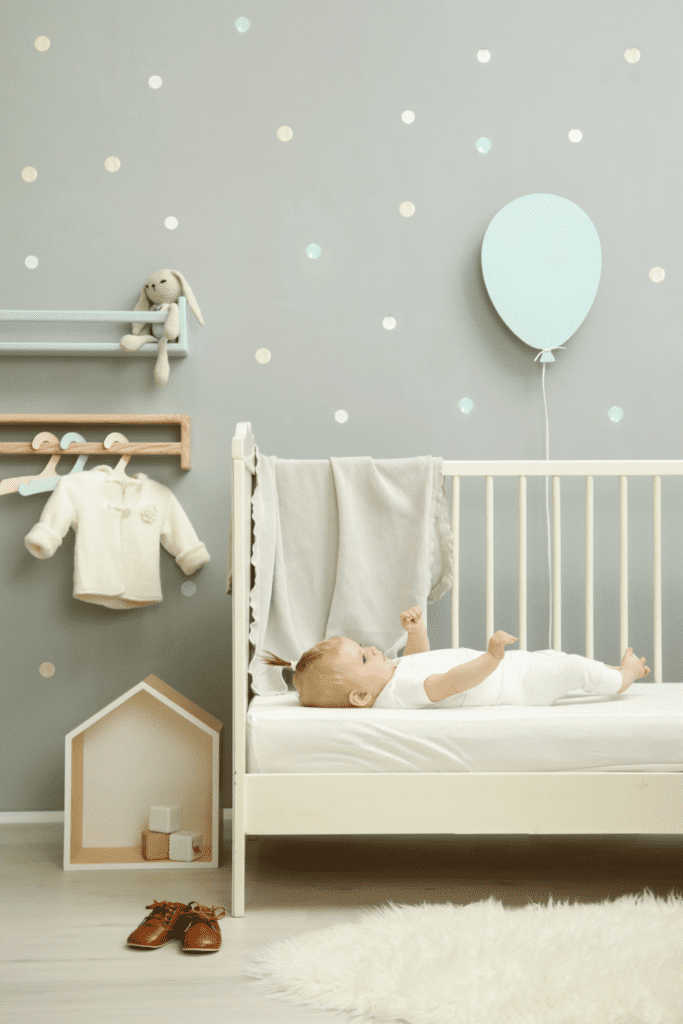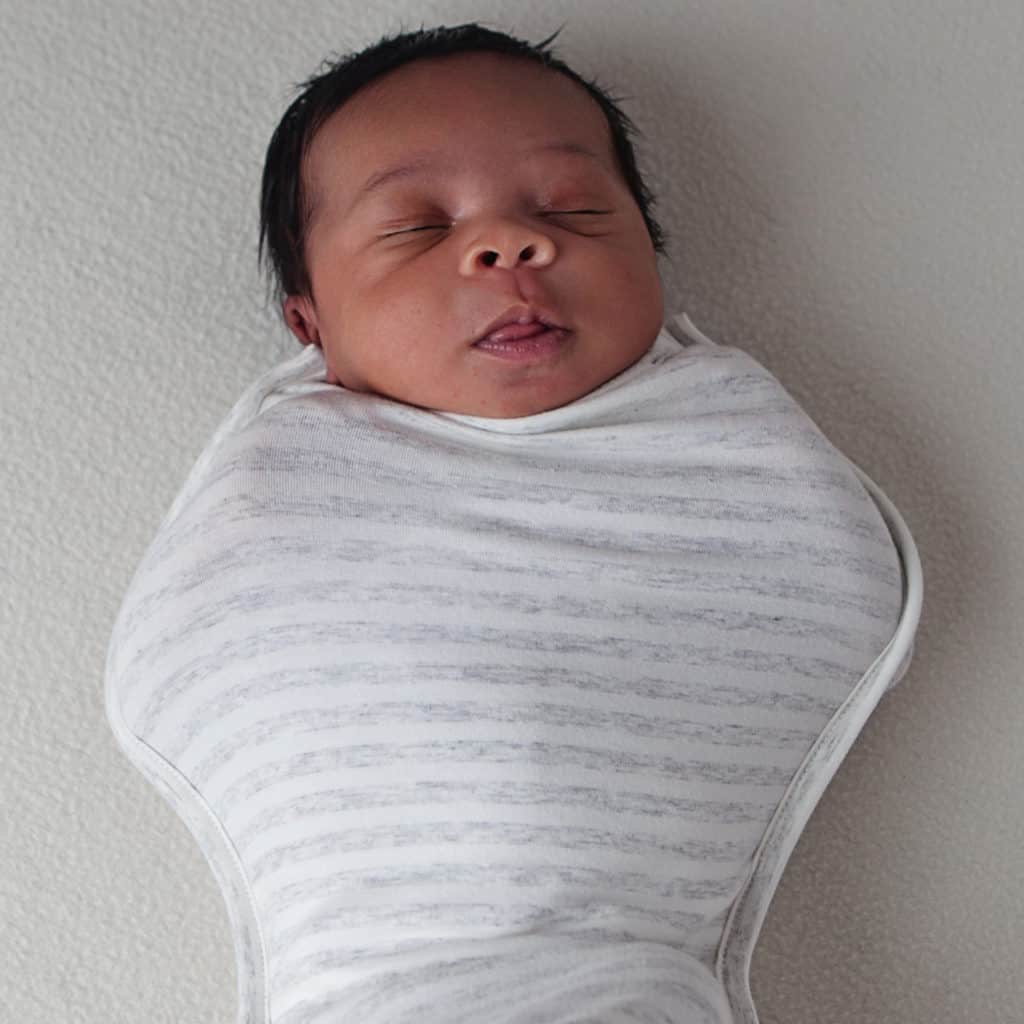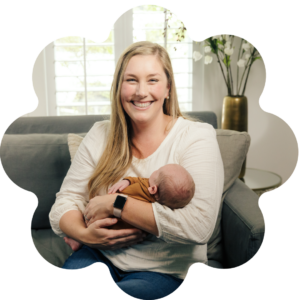
What comes to mind when you hear of the term “Sleep Training”? Many parents think of the infamous approach of letting your baby cry it out when they wake up in the middle of the night.
If you want to sleep train your baby and promote better nighttime sleep without the tears, I’ve got some tips for you.
First off, why shouldn’t you let your baby cry it out?
I’m a big proponent of discovering the “why” behind the issues babies are experiencing. Letting your baby constantly cry during the night in an effort to teach them to self-soothe could not be resolving the reasons behind the cries.
Having a nighttime sleep checklist that addresses some of the most common Whys behind poor nighttime sleep can go a long way to setting your baby up for sleep success.
Quality And Full Feedings
Is your baby only snacking? If they only snack, they will need to wake up more often to feed.
To help encourage full feedings, make sure your baby is latching correctly if you’re breastfeeding. Recognize your little one’s hunger cues. Crying is a late hunger cue; when they start smacking their lips and bringing their hands to their mouth, they’re telling you that they’re hungry.

“Ideally, at least one breast should be well-drained at each feeding. This is more important than being sure baby feeds from both breasts, since hind milk — the last of the mature milk that baby feeds on — is richer in fats and calories. So don’t pull the plug arbitrarily. Instead, wait until your baby seems ready to quit on breast one, then offer, but don’t force, breast two,” explains What To Expect about how to ensure your little one is getting enough milk.
Your baby will let go of your nipple or slow down their swallows dramatically (around four sucks per one swallow) when they’re full.
Create An Optimal Sleep Environment
Where your baby sleeps matters! Noise, bright light, and uncomfortable clothes won’t help them drift off to dreamland.
Get blackout curtains or thick blinds to block out any light coming in from outside. Make sure the sounds of the TV aren’t coming through into the nursery. A white noise machine is an amazing addition to the nursery to drown out any disturbing noises. If you don’t want to get a white noise machine, a fan also works; plus, it can help keep the room cool and comfortable.

Put Them In A Swaddle
Babies are often woken from sleep earlier than ideal when not swaddled due to the Startle Reflex which makes them feel like they’re falling.
A swaddle can help your little one feel safe and secure because of the womb-like environment it promotes.
No, a swaddle isn’t like putting your baby in a straitjacket. Make sure your baby is able to have their arms midline to their body when in a swaddle. Plus, the swaddle fabric should be stretchy but secure.
One of my favorite swaddles is the Woombie. It allows babies to stretch and move naturally, so that they’re comfortable.

Once your baby starts rolling on their side, this is a sign they’re ready to roll over. When this starts happening, stop swaddling them.
Create A Bedtime Routine
A routine is not the same as a strict schedule. Doing a few activities consistently during the leadup to bedtime can help sleep train your baby.
A warm bath, a massage, a full feeding, and a lullaby are some examples of what you can do to help your baby relax and get ready for sleep.
The key to a successful routine that will help sleep train your baby is consistency. You’ve got to stick to it! Once you find out what your baby responds well to, keep coming back to it nightly.

Put your baby down in the crib for sleep when they’re drowsy, but not fully asleep. This will give them the opportunity to self-soothe. This is for babies 12 weeks and older. Babies younger than 12 weeks aren’t at the developmental level to self-soothe, so you’ve got to assist your little one to drift off into a deep sleep before putting down.
Let Them Sleep During The Day
This may seem counterintuitive, but keeping your baby awake for longer won’t help them sleep better at night. Naps are good for babies! A little one who doesn’t nap enough is often overstimulated and will struggle to fall asleep.
Good quality daytime sleep prevents your baby from becoming overtired, which in turn helps your baby get quality, full feedings during the day.

All of this and more is in our Babies Made Simple course.
Sleep training doesn’t have to include letting your baby cry it out. Get curious about why your baby is waking up often during the night, and set your baby up for successful nighttime sleeps.




